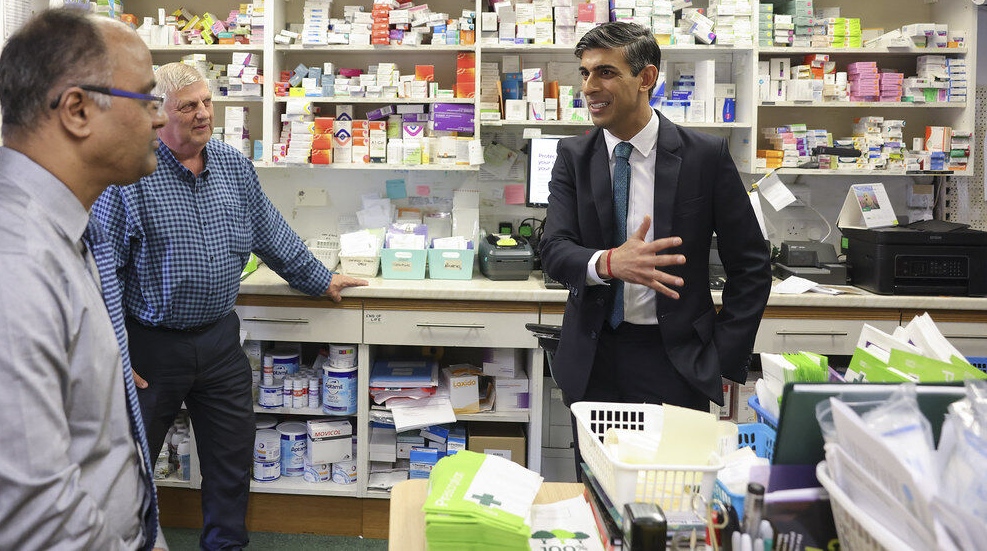What Does Pharmacy First Mean for Your Business?
Posted in: Latest News... 2nd February 2024
In recent times, the healthcare sector has undergone significant changes, with governments worldwide introducing innovative programs to enhance accessibility and efficiency. In the United Kingdom, Prime Minister Rishi Sunak has introduced the NHS Pharmacy First program, a pioneering initiative aimed at transforming the role of pharmacies in the healthcare system.
Understanding NHS Pharmacy First:
NHS Pharmacy First is a program designed to empower community pharmacies and position them as the first point of contact for minor health concerns. Launched as part of the broader NHS strategy, this initiative aims to relieve pressure on other parts of the healthcare system, such as general practitioners (GPs) and emergency services, by diverting low-risk cases to local pharmacies.
Pros of Pharmacy First:
1. Enhanced Accessibility:
- The program makes healthcare services more accessible, allowing individuals to seek advice and treatment for minor ailments directly from their community pharmacy. This increased accessibility can be especially beneficial for individuals in remote or underserved areas, where access to primary care services might be limited.
2. Relieving Pressure on GPs:
- By diverting minor health concerns to pharmacies, the program helps reduce the burden on general practitioners, allowing them to focus on more complex cases and critical healthcare needs. This could potentially lead to shorter waiting times for GP appointments and improved overall efficiency in the healthcare system.
3. Cost-Efficiency:
- Pharmacy First has the potential to be a cost-effective solution for minor health issues, as pharmacies are often more cost-efficient to operate than primary care facilities. Patients may also save time and money by avoiding unnecessary visits to GPs or emergency rooms for minor ailments.

Cons of Pharmacy First:
1. Training and Resources:
- Implementing Pharmacy First requires appropriate training for pharmacy staff to handle a broader range of health concerns. Some pharmacies may face challenges in terms of resources and may need additional support to meet the increased demand for services.
2. Integration with Existing Services:
- Ensuring seamless integration of Pharmacy First with existing healthcare services is crucial for its success. The program may face resistance or scepticism from patients and healthcare professionals if the transition is not well-managed.
3. Risk of Misdiagnosis:
- While pharmacies can address minor ailments, there is a risk of misdiagnosis or overlooking more serious conditions. A robust system for identifying cases that require immediate medical attention must be in place to mitigate this risk.
The NHS Pharmacy First program represents a significant step toward transforming community pharmacies into frontline healthcare providers for minor health concerns. While the program offers several advantages, it is essential to address potential challenges and ensure a smooth integration with existing healthcare services. As the initiative unfolds, businesses in the pharmacy sector should adapt to these changes and seize the opportunity to play a pivotal role in enhancing healthcare accessibility for communities across the UK.
⬅⬅ P.S. Did you Spot our bags in Rishi Sunak's LinkedIn post!!




.jpg)